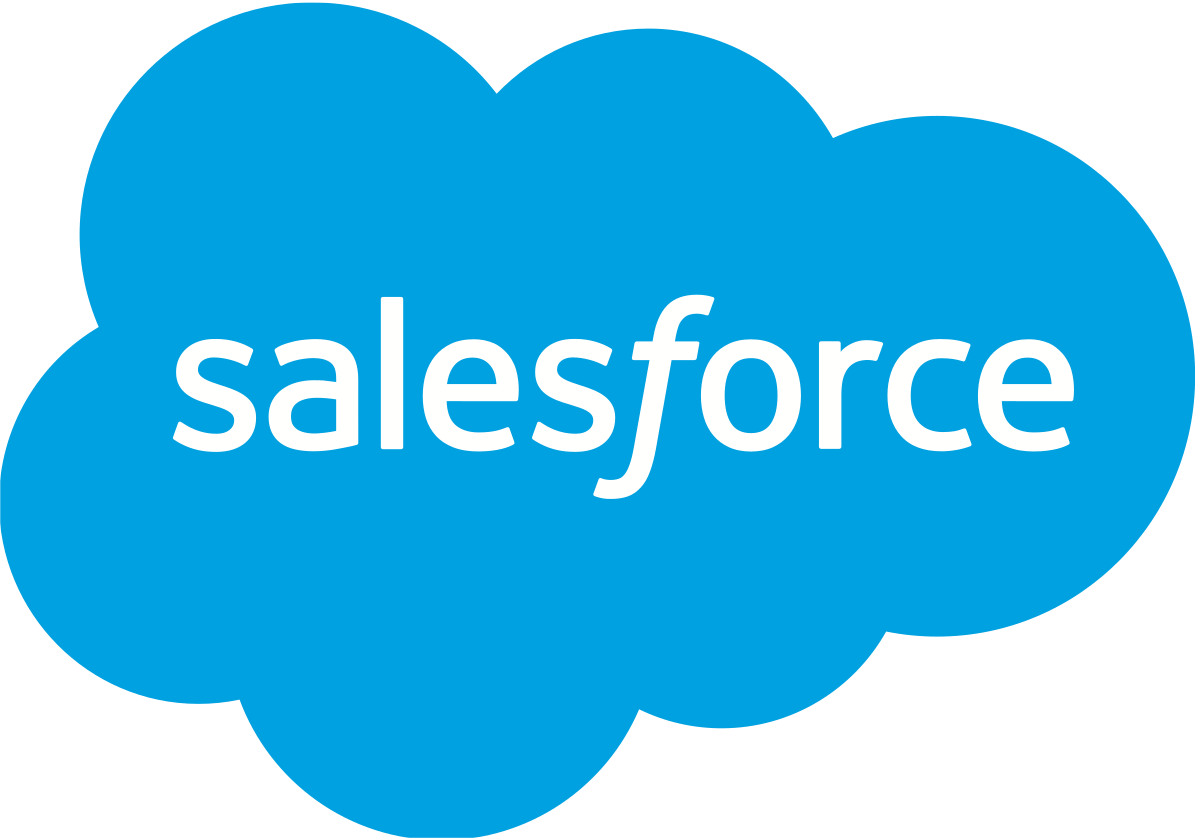Customer relationship management (CRM) software is a powerful tool any business can use to manage business leads, guide a customer’s journey efficiently and close more sales. Depending on the size of your business and how robust a platform you need the monthly price for a CRM software platform could range from free to thousands of dollars a year. In this CRM pricing guide, Forbes Advisor compares plan options to help you decide which is best for your needs.
What Is a CRM?
CRM stands for customer relationship management. The main purpose of CRM software is to help businesses build better relationships with customers by helping companies stay connected with customers, streamline processes and improve sales. Typically, this process begins with a lead capture form or personal contact with a potential customer, whose information is then stored in the CRM and can be referred to at any time.
There are many types of CRM applications, each best suited for different uses. Operational, analytical, collaborative and marketing-focused CRMs can be customized for teams’ unique needs as they strive to keep tasks progressing smoothly and assist clientele efficiently.
CRM Pricing and Plans
CRM software platforms generally charge a monthly fee per user. To determine what your investment will be, you will need to multiply the number of employees using the software by the monthly base cost of the CRM. Most, if not all, CRM software platforms offer generous discounts if you purchase the software on an annual basis as opposed to a monthly basis. For example, monday.com offers customers an 18 percent discount when paying annually instead of monthly.
CRM Tiered Pricing and Plans At a Glance
| Company | Free Plan | Entry- Level Paid Plan | Midtier Plan | High-tier Plan |
|---|---|---|---|---|
 Freshsales | Yes | $9 | $39 | $59 |
| Yes | $14 | $23 | $40 | |
| Yes | $15 | $800 | $3,600 | |
| Yes | $12 | $17 | $28 | |
| No | $165 | $330 | $500 | |
 Zendesk | No | $19 | $55 | $115 |
 Bitrix 24 | Yes | $49 | $99 | $199 |
The average price for an entry-level plan is $23, making it an affordable option for almost any business. The mid-tier and high-tier plans jump up considerably to $102 and $403. The extremely high price of HubSpot and Salesforce plans in comparison to the other software providers offsets the average. If you remove these from consideration, the average price for the upgraded plans would be $45 and $74, respectively.
CRM Tiered Features and Pricing
| Zoho CRM | monday.com | Zendesk Sell | Freshsales | Insightly | |
|---|---|---|---|---|---|
| Forbes Advisor Star Rating | | | | | |
| Free Plan | Yes | Yes | No | Yes | Yes |
| Starting Price | $14 | $9 | $19 | $9 | $29 |
| Contract Length | Monthly | Monthly | Monthly | Monthly | Monthly |
| Free Trial | 30 days | 14 days | 14 days | 21 days | 14 days |
| Pipeline Management | Yes | Yes | Yes | Yes | Yes |
| Document Library | Yes | Yes | Yes | Yes | Yes |
| Analytics | Yes | Yes | Yes | Yes | Yes |
| Mobile App | Yes | Yes | Yes | Yes | Yes |
| Custom Dashboards | Yes | Yes | Yes | Yes | Yes |
| Learn More | ‘- | ‘- | |||
| Read Reviews |
While many of the CRM software companies offer a free plan, those plans are typically limited to a small number of users, limited number of contacts and bare minimum features. For example, monday.com limits its free plan to two users, three boards and only a Kanban view. Zoho CRM’s more robust free plan includes leads, standard reports, contact automation, account automation and a document library for up to three users. Freshsales might have one of the best free plans of any CRM software platform. Its forever free plan has an unlimited number of users, which is almost unheard of, as well as unlimited support, a mobile app and the maintenance of leads, customers and deals leads.
Each company’s basic plan varies. However, most include only the essential functions of customer relationship management. Companies such as Freshsales allow users to automate basic workflows, including welcome emails, renewals and reengagement outreach. Zendesk Sales’ basic plan is lean on features but does allow users to track emails, text messages and calls in up to two sales pipelines.
Workforce automation and customizable dashboards are usually offered in the midtier plan. For example, Insightly’s Professional Plan begins to include custom page layouts, complete workflow automation and the ability to schedule outbound emails. Freshsales’ midtier plan begins to include multiple sales pipelines, more workflow automation and artificial intelligence (AI)-powered sales insight.
The highest-tiered plans tend to be for users who have grown out of the standard plans and need a higher level of customization and automation to streamline complex workforces.. monday.com’s Pro plan includes private boards and docs, chart views, formula columns, dependency columns, more automations and integrations and a dashboard that can combine up to 10 different boards while Zoho CRM’s top-tier plan includes AI-powered features to help you predict the conversion of leads and sales trends.
Which Plan Should You Choose?
Choosing a plan that is best for your company depends on a number of factors including the size of your sales team, how customizable you want your CRM system to be and how much money your budget allows for the software. Before diving into researching potential CRM software platforms for your business it is smart to create a list of exactly what you want from a potential CRM software, identify who is going to use the software, what goals you want the CRM tools to help with and how much money you are willing to spend on the monthly or yearly subscription. Once you know what you want out of your CRM software you can search plans within those parameters.
If you are like most people, you might be reluctant to part with money unless you are sure the product will suit your needs. Luckily, most of the CRM software companies offer a free trial period for you to test out the software to make sure it meets your needs.
How To Find CRM Discounts
Staying within your budget is always going to be a top priority when it comes to running your business. Of course, software companies need to make ends meet as well, but there are some ways to make sure you get the best deal on their products and services.
Annual Payment vs. Monthly Payments
Most CRM software platforms allow you to pay for their services on a monthly or annual basis. You will likely save money if you pay for your CRM software in one lump sum on an annual basis instead of a monthly basis. Zoho CRM offers its users a 34 percent discount when they pay on an annual basis as opposed to a monthly basis while monday.com offers customers an 18 percent discount.
Third-Party Sites
While you should always approach third-party sites with reasonable caution, there are a few avenues that offer legitimate ways to get discounts on software if your business meets the eligibility criteria. For example, TechSoup is a site that helps nonprofit organizations acquire software licenses for far below the market rate. The qualifications for these discounts will vary depending on which site you use, so have your business formation paperwork close at hand when registering.
CRM Free Trials: What You Should Know
CRM software companies know that not every CRM tool works for every customer. That is why they offer a generous free trial period, usually two weeks, to allow potential customers to test drive their software before committing to a subscription.
How Long Is the Free Trial?
The free trial length varies by service provider. Zoho CRM offers a generous 30-day free trial, but it’s more common for companies to offer a briefer trial that only lasts two weeks. Some software companies will require the user to enter a credit card number when signing up for a free trial. Software companies will use that credit card number to begin automatically charging the user once the free trial period is over unless the user cancels their plan. Fortunately, these CRM software companies do not require users to give their credit card information when they sign up for the free trial.
| monday.com | Zendesk Sell | Insightly | Freshsales | Zoho CRM | |
|---|---|---|---|---|---|
| Rating | | | | | |
| Free Trial | 14 days | 14 days | 14 days | 21 days | 30 days |
| Credit Card Required? | No | No | No | No | No |
| Number of Users | Unlimited | Unlimited | Unlimited | Unlimited | Unlimited |
What’s Included In (and Missing From) the Trial?
What is included and not included in free trials varies by service provider. monday.com’s free trial includes all benefits of the monday.com Pro plan. Features on this plan include shareable boards, private boards, 25,000 automations and ten boards. Freshsales free trial includes a 360-degree view of customers across sales, marketing and support touchpoint, AI-powered insights and predicted revenue with forecasting and reports.
Can You Extend a Trial?
Most CRM software platforms do not allow for free trial extensions. None of the CRM software companies we reviewed advertise that they offer a free trial extension. If you run into circumstances that may lead you to want to extend your free trial, however, it does not hurt to email the company to ask. For example, Freshsales recommends free trial users email their Account Manager or the sales department with their account details to discuss the possibility of extending a free trial.
Bottom Line
With the ability to streamline communications, automate tasks and improve sales, an investment in CRM software is more than worth it for most businesses. If you are considering making an investment in CRM software for your business, first identify your CRM strategy, calculate your budget then determine how many employees will be using the software. If you are a small business, you can read our guide on the best CRM for small businesses to determine which platform is right for you.
Frequently Asked Questions (FAQs)
What type of business uses CRM software?
Almost any type of business can benefit from CRM software. The software benefits project managers by allowing them to easily collaborate with team members, developers benefit by allowing them to track bug reports easily and sales teams benefit by allowing them to track sales leads and provide marketing opportunities to their customer base.
Which CRM software is best for customer service?
We ranked Zendesk Sell as the best for businesses that need to provide customer support. Its ticketing system allows customer support managers to view team performance at a glance on a centralized dashboard and provides agents with the customer details they need to navigate interactions.
Are there any free CRM software platforms?
Several CRM software platforms offer a forever-free plan. While the majority of the forever free plans are limited to a small handful of users, Freshsales’ forever free plan includes an unlimited number of users. For more information check out our guide to the best free CRMs.
Does CRM require a large IT investment?
There are plenty of cloud CRM solutions that information technology (IT) novices can employ. You don’t have to make a large investment in physical IT infrastructure or hire IT staff to manage your CRM. Many CRM solutions are available as software as a service (SaaS), which means that you only pay for what you use and can stop using it at any time.


















